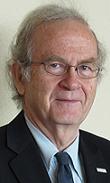
What Rural Health’s “Early Days” Tell Us About Today
Tim Size, Executive Director, Rural Wisconsin Health Cooperative
I have had the honor to work in rural health for almost 40 years–at the Rural Wisconsin Health Cooperative in Sauk City as well as with the National Rural Health Association and the U.S. Department of Health and Human Services.
A new study from the Federal Centers for Disease Control (CDC) shows that Americans living in rural communities are more likely to die prematurely from the top five causes of death (heart disease, accidents, stroke, cancer, and respiratory disease), than are their urban counterparts. This is not the time to be defunding rural health care–particularly given that Medicare’s per capita expenditure for rural beneficiaries has historically been well below that for urban beneficiaries.
At the same time as rural and urban mortality rates have been diverging, 80 rural hospitals have closed over the last few years. In addition, according to iVantage, nearly 700 rural hospitals are vulnerable and could close, representing over one-third of rural hospitals in the U.S. If we don’t act now, we will see a massive round of rural hospital and clinic closures.
Closure doesn’t just mean that the CEO needs to find a new job but that the community loses one of its largest employers–an economic engine for local jobs that also supports the recruitment and retention of local businesses/industries.
The challenges in 1980s were similar but the advocacy resources are much stronger today; we must make the best use of them:
- The biggest similarity between then and now is that Medicare had then just implemented an entirely new way of paying providers–the Prospective Payment System (PPS) that “threw the rural baby out with the reform bathwater.” Today, a shift to premium support, block grants or reducing state oversight of insurance companies, unless the rural context is fully taken into account, would be at least as devastating.
- Initially, rural health advocates had almost no presence in Washington. The National Rural Health Association was just getting organized, there wasn’t a Federal Office of Rural Health Policy and there were very few state offices of rural health.
- We didn’t have the rural Critical Access Hospital (CAH) designation until 1997. Much of the 1980s and 1990s was spent trying to adapt the PPS to the rural context. Contrary to current mythology, CAHs were not developed as a federal charity but the results of a long search to develop a rural alternative to PPS that never worked for small rural hospitals.
We are well positioned to not repeat our history, but only if we make sure Washington pays attention.
 Overwhelmingly, it was the implementation of Medicare’s Prospective Payment System that created the rural hospital closure crisis in the 1980s. Through the 1980s, with the unexpected closure of hundreds of rural hospitals, a broad acceptance all too slowly developed that the design of PPS was totally urban centric and negatively impacted rural hospitals in ways that made neither professional nor political sense.
Overwhelmingly, it was the implementation of Medicare’s Prospective Payment System that created the rural hospital closure crisis in the 1980s. Through the 1980s, with the unexpected closure of hundreds of rural hospitals, a broad acceptance all too slowly developed that the design of PPS was totally urban centric and negatively impacted rural hospitals in ways that made neither professional nor political sense.
We have learned nothing from our past if we allow this to happen to us once again. For the communities who lost a local hospital, it was very personal. It meant a loss of jobs, a blow to pride in their local community, less ability to attract new job creating businesses and above all, a loss to a closer source of care during a medical emergency.
For the rest of us it created a feeling of being attacked by our own government and reinforced the stereotype that rural wasn’t very important–that we didn’t need rural hospitals. There was a very strong sense of anger, not all that different than that seen in the 2016 election cycle driving Trump and Sanders’ supporters.
Bottom line, as bad as the rural hospital closure crisis already is in many but not all parts of the country, it will become a tidal wave across all of rural America if Medicare, Medicaid and insurance market reforms, due to political expediency, turn its back on rural providers and the communities they serve.
(Tim Size is executive director of Rural Wisconsin Health Cooperative, Sauk City. RWHC is owned and operated by 40 rural hospitals, including Tomah Health)
LEARN MORE ABOUT THE RURAL WISCONSIN HEALTH COOPERATIVE click here